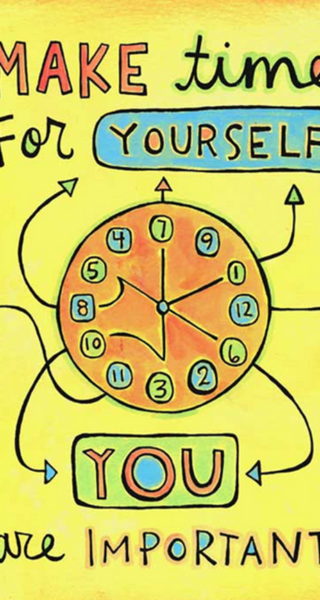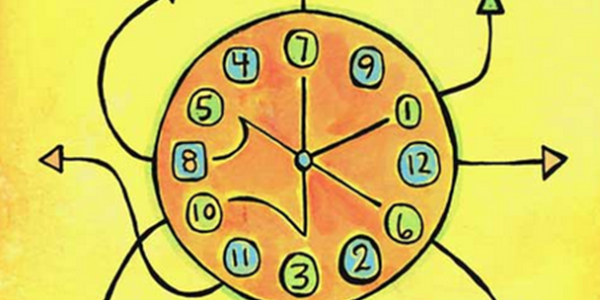Mental Health · Physical Health · Preventative Disability Management · Workplace Health
Consistent Self-Care Won’t Happen Until You Change This


This is about consistent self-care. But first, what is self care? Self-care is the practice of intentionally nurturing one’s physical, mental, and emotional well-being through activities and behaviours that promote relaxation, rejuvenation, and overall health. And this is only possible when you are consistent, Consistency is so important, more so than what you do, or how much.
How many times have you heard that before?
If you’ve tried to stick with your self-care you probably know how difficult it can be.
How to Make Self-Care Work for You?
The difficult part is figuring out how to actually make self-care a priority without giving up or losing the things that are really important to us.
It requires having compassion with ourselves (a new skill).
It also involves getting out of survival mode so we can be more proactive (difficult, new skill).
How to do that is going to be shared in this article.
It’s not your fault it’s hard.
What we see over and over in our work is that our clients know they need better self-care strategies. They know that their current level of stressors outweighs (often largely) their ability to cope.
Isn’t it like this for most of us?
So why then, is it so difficult to consistently invest in ourselves?
We may tell ourselves that we have no time, or that we have no energy left at the end of the day, and those things are likely true.
It may be that work is just too stressful now to worry about self-care.
It might be that the organization we work for doesn’t value self-care, or it’s just not possible in this role.
Yes, the world is highly stressed right now. If you’re feeling that way, you’re not alone. Learning something new, at the best of times, is challenging. In my personal, and professional experience, this is especially true in times of overwhelm and high stress.
Read Also: How to Have Work Life balance When You Have No Time?
The Hidden Gift
There is a hidden gift in all this though (actually two) because these are also the times when having effective self-care strategies that consistently mitigate the negative effects of high stress is:
- most important
- and has the largest potential benefit for you
- rare
Imagine if you didn’t feel drained before you even started your work day.
Imagine how much:
- The more productive, happier and better company you’d be
- Better you could help your coworkers and teammates
- Easier it would be to get that workout in and make time for your friends and family
Sounds great…
So, with everything else going on, how do you do it?
How To Be Consistent in Self-Care?
One of the biggest challenges we see over and over that holds people back from locking in consistent self-care is that they put a large focus on learning, reading, and conceptualizing the “best” self-care strategies.
The problem with this, is it eventually becomes just another way of putting off what’s truly difficult, scary, and rare…
Getting started.
After coaching 100s on their self-care, I can confidently say that I have never seen someone create a “perfect recipe” from day one.
I can count 100s of success stories that started imperfectly and started small, including my own.
The constant reading, perfecting, and conceptualizing keep us limited to intellectual knowledge.
That’s not what people need more of.
This kind of intellectual knowledge and reasoning for why self-care is “important” is the exact same reasoning that we rationalize away when we get busy or stressed or stuck in an organization that doesn’t care about our self-care.
Even if these things are true, it doesn’t help you improve your self-care (focussing on this is actually de-motivating).
We need more emotional reasons to invest in self-care. As Stephen Covey put it: The world is not just logical, it’s emotional too.
We need to build an intrinsic drive to invest in ourselves, and for most of us, hyper-intellectualization becomes a disguise for procrastination.
We can rationalize the benefits, but if you’re still not consistent with your self-care and you find yourself investing even 5 minutes per week on reading and perfecting… that’s 5 minutes that could be spent building new self-care habits that last.
Emotional Learning for Consistent Self-Care
In my experience, there is a special kind of learning that takes place when I take action. The emotional kind. It’s hard to describe with words, but I know how it feels.
It feels like progress and It feels liberating.
It feels like “I want more of that”.
That feeling probably has something to do with the surge of dopamine as a result of doing something that I know is good for me but that’s not what’s important.
What’s important is that taking action, creating success with self-care, and recognizing that success, is the essential ingredient for making self-care automatic and easy. It’s the key to becoming consistent, at least it is for me.
Of the people who have experienced the 5 day “Fill Your Cup First Challenge” (a 5 day experience teaching you how to invest in your own self-care to boost productivity and energy) many have shared this being their experience too.
A surprise benefit of taking action
When you start taking action there is another HUGE advantage that I underestimated early on in my journey (and sometimes need to be reminded of). If you’re anything like me and my clients, you probably have known for a while that you need better self-care. It’s probably been on some kind of mental “to-do list” for a long time, eating away at your motivation, leaving behind an underlying sense of guilt and frustration for not having addressed it yet.
For me, taking action released so much energy, and continues to do so. On the intellectual side, recent research firmly supports that this kind of intentional action is highly beneficial for resilience against stress.
On the emotional inside, I firmly believe this is a huge reason for my own resilience, but don’t take my word for it, try it for yourself!
Summary: Change this for Consistent Self-Care
So here it is: If you want to become consistent with your self-care, you need to value it not just intellectually, but emotionally. To do that, you need to do it. You need to get out there, try, fail, learn, and eventually succeed.
It will take effort, but much less than you think, and way less time than most people expect.
If you have no time, no energy, and nothing left to invest in self-care, you probably need this most.
You can check out this blog: “Master your self-care in 5 minutes per day”. It’s a step-by-step guide that takes 5 minutes (or less) per day and will help you get started. We also recommend reading “How (and Why) to Make Regular Self-Care a Priority” for more self-care tips.
For those who want additional support, guidance (and maybe a kick-start) you can check out our free 5 day challenge for HR leaders.
It’s designed for HR leaders but can help anyone who wants to better their self-care and improve resilience against stress. Also, you can enroll into our Self-Care workshop and get comprehensive guidance in this direction.
Get in touch with us today.